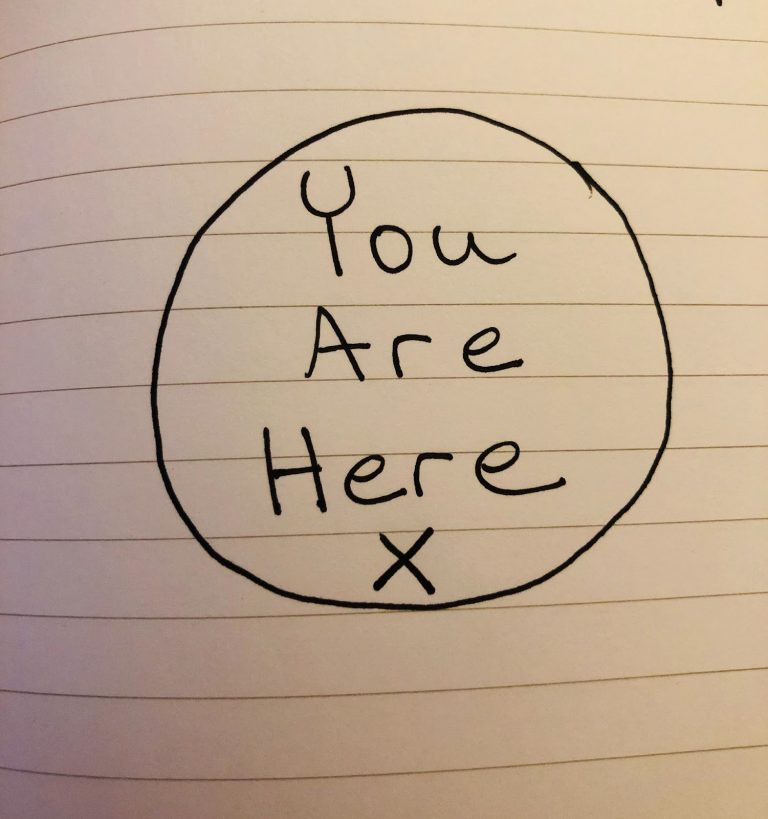So, I hear that positive thinking has fallen from grace. It has “brainwashed [us] into thinking that that confidence will eventually cause competence,’ as Tomas Chamorro-Premuzic said in an interview with the Harvard Business Review. The result is over-confidence, people who think they can do everything, when they don’t have the competence to do anything. (Reminds you of one or the other manager?)
Worse still, ‘positive thinking’ has the potential to terrorize people into believing that any pain or dark mood they experience, in addition to being painful, is also a sure sign of their failure to think positively.
Yuk. Bad positive thinking. Bad bad.
Hold on. Here is the thing. We have a tendency to polarize. If it’s not black it must be white; if it’s not good it must be bad; if you’re not my friend, you are my enemy. THAT kind of thinking is what hurts. And until someone — convincingly — shows me how continuously beating yourself up over last week’s mistake or hating that rain cloud for ‘spoiling my day’ makes your life more enjoyable, I insist that positive thinking is better than negative thinking.
So, what’s the problem with positive thinking? It’s when another tendency of our beautiful human race comes into play: the desire for quick fixes. The one pill that kills all the pain. We want to cross the finish line, but we don’t want to run. We want to hire a coach to ‘make us feel good’. We want our marriage to make us happy. Children of the world, it doesn’t work like that! When we take positive thinking as the one and only solution to our problems, we are setting ourselves up for some pain. When we think that positive thinking is a substitute for doing the work, we will fail again.
First of all, whatever positive affirmations you tell yourself will only serve as far as you believe them. There is no point in spending half an hour every day saying ‘I can do this’, when deep down you believe that you cannot succeed. You need to go deep, face your fears, know where you are coming from and change the beliefs you hold about yourself.
Second, positive thinking needs a basis in reality. No matter how often you tell yourself you can fly like a bird, you can’t. Sorry. And if you are 39 years old and have never played golf, yes, you can still become a golf champion, but, guess what?, not in the under-40 league. Sorry.

Third, and maybe most importantly, positive thinking is NOT denial of the ‘negative’. Oliver Burkeman, author of The Antidote: Happiness for People Who Can’t Stand Positive Thinking, says that “positive thinking has become a sort of allergy to anything negative.” That is not helpful.
When your child is afraid of the monster under her bed or the upcoming exams or cries over her cut finger and you tell her: just think positively, you are denying her feelings, her fears, her pain. How can our child learn to accept pain or failure in life, when we don’t? How painful is it for a child to be denied any compassion of the ones that are closest to them?
Positive thinking must grow out of acceptance. I feel this pain and that’s ok. There is no need to try to tell me that a headache is a blessing or that breaking up a relationship is great fun. It isn’t. Accept that you hurt. Accept that there is pain in your life at this moment. THEN you can learn your lessons from it. THEN you can care for yourself positively. THEN you can create space for positive thinking: “We broke up and it hurts. But now I can do something for me, namely …..”
Positive thinking for confidence follows the same principle. It must grow out of acceptance of what is and looking towards the potential of what it can become. Pretending we are a skilled surgeon when we have never studied medicine is not confidence, it’s fraud or delusion (depending on how much we actually believe it). Knowing that we are enrolled in med school, are studying hard, take every opportunity to practice and have already earned good grades, we can be confident to BECOME a skilled surgeon.
Bottomline: the opposite of negativity is not positive thinking. It is acceptance. Next time you catch yourself judging a situation, a person or even the weather, don’t try to force yourself to turn your judgement into the opposite (“Awesome! I’m stuck in traffic and loving it!”). Instead relinquish your judgment (whether you love or hate being stuck in traffic isn’t going to change it anyhow). Allow the world to be as it is. Allow yourself to feel what you feel. Then see what happens.



